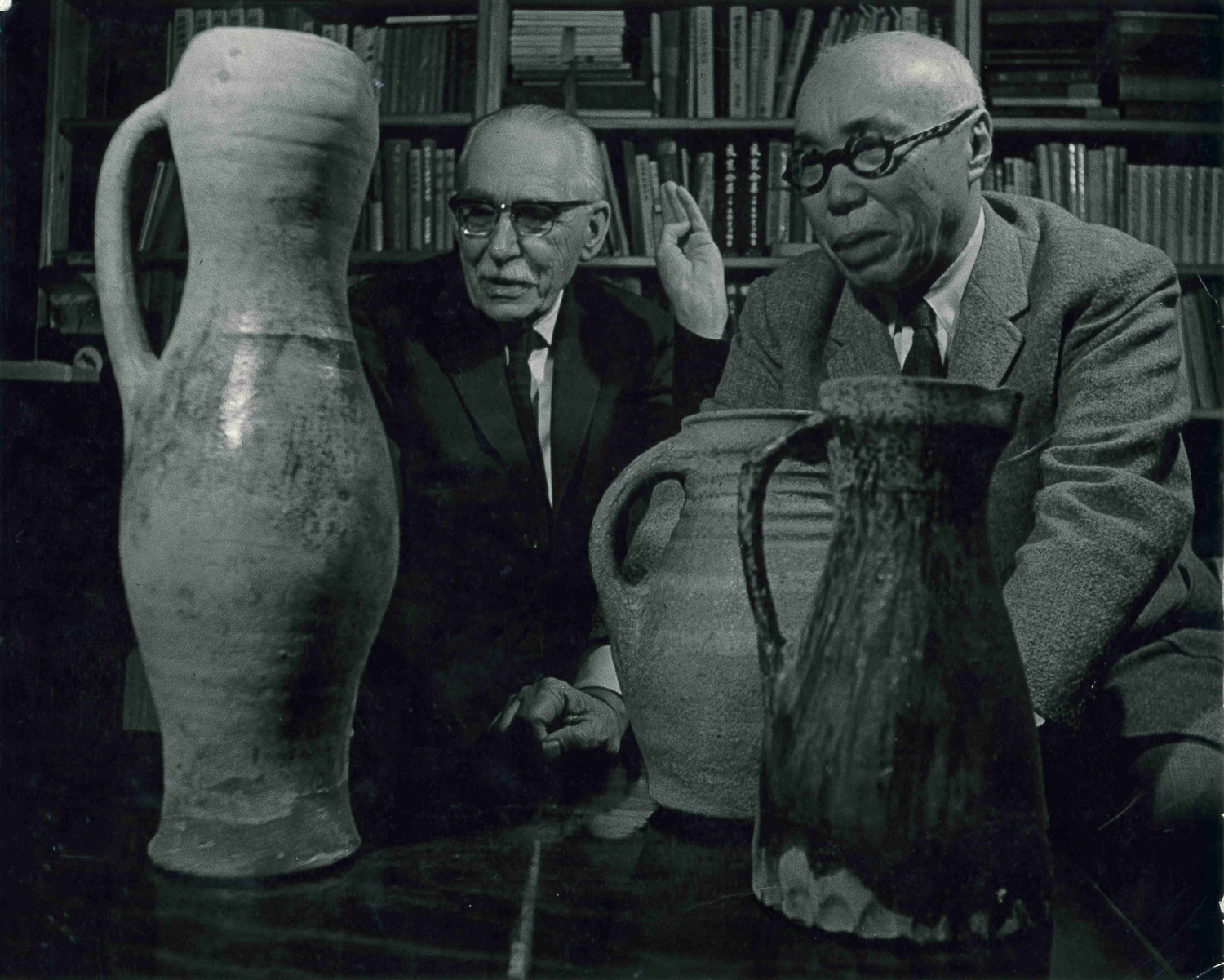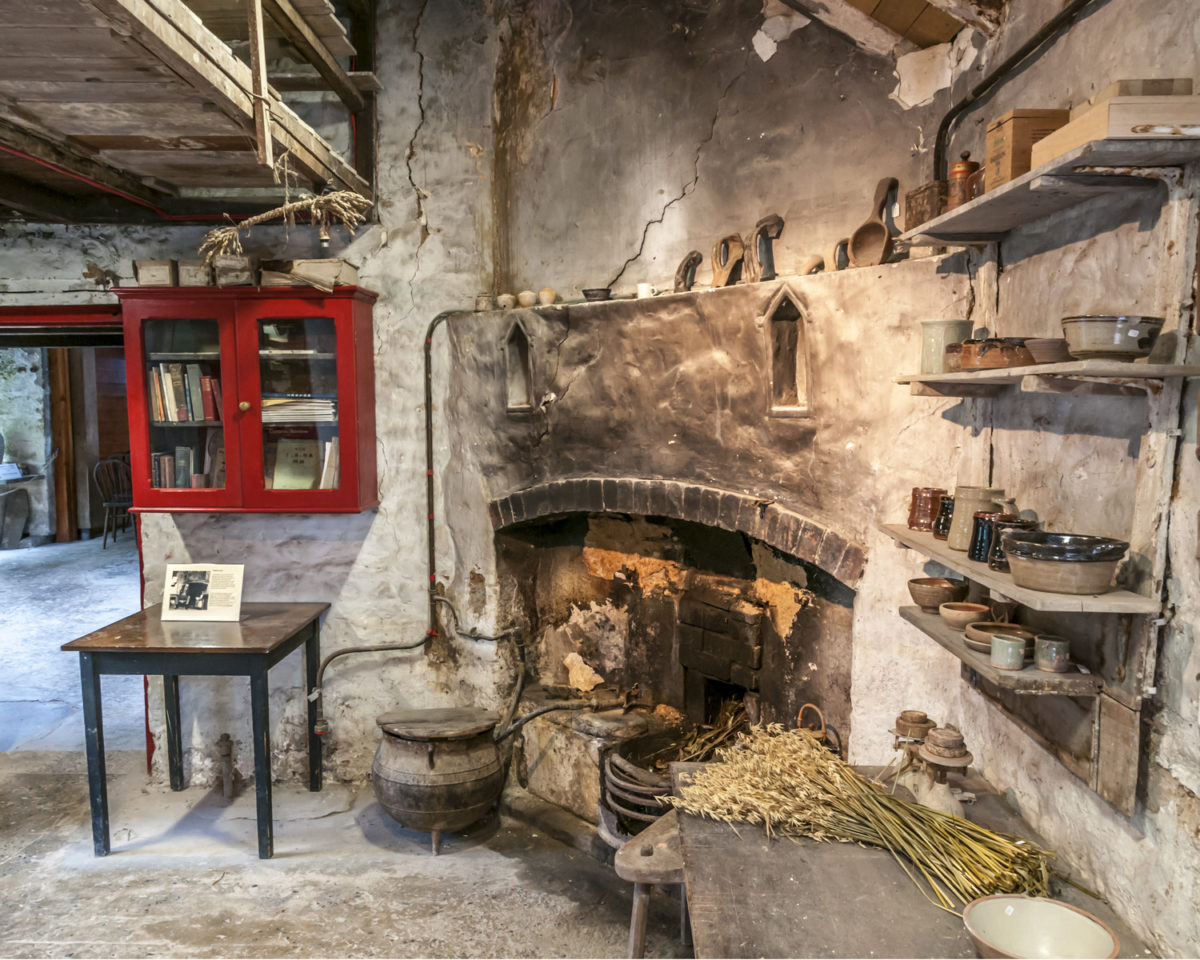The gathering of G7 world leaders and guests in Cornwall this summer shines a light on a 100-year-old story of international creative collaboration and the living legacy of the world-renowned Leach Pottery.

Bernard Leach and Shoji Hamada. Photograph: Crafts Study Centre University for the Creative Arts/ Sugiyama Kira
Unlike the esteemed global delegates travelling to Carbis Bay in West Cornwall this week, no fanfare heralded potters Bernard Leach and Shoji Hamada when they arrived from Japan in the exact same spot a century ago.
Yet the international significance of their East-West creative collaboration still burns brightly, not least at the Leach Pottery, the groundbreaking studio they founded together in St Ives in 1920, where today their legacy is thriving in a forward-thinking, imaginative, and sustainable way.
With Japanese prime minister Yoshihide Suga among the global leaders set to visit the town where the ceramic pioneers and soulmates established what is now a centre of excellence, exchange and learning, what better time to reflect on the cross-cultural story of Bernard and Shoji?
It’s an opportunity to witness how their work continues to influence ceramics and studio potters across the world, and to look at how celebrating these important international creative associations in 2021 can help boost a globally-focused covid recovery.
Bernard Leach CBE was regarded as the father of British studio pottery, writing extensively on the subject, while constantly broadening his experience and lecturing in countries around the world, including Japan and the USA.
After living and working at the studio in Cornwall for three years, Shoji Hamada returned home to Japan in 1923 and became a major figure in the mingei folk-art movement, establishing the town of Mashiko, north of Tokyo, as a world-famous pottery centre.

The interior of the Leach Pottery today. Photograph: Leach Pottery
Just as Bernard found his ceramic calling when he discovered the beauty of raku as an artist teaching etching in Japan, Shoji credited his own career path to his fundamental experiences at the pottery in St Ives. Three generations of the Leach and Hamada families have since become potters and their cultural and personal friendship continues to this day.
Echoing those close connections, blossoming symbols of a broader, ongoing amity between the UK and Japan can also be found in the garden at the Leach Pottery. Ornamental cherry trees were planted there last year as part of the Sakura Cherry Tree Project. The initiative celebrates the two nations’ 150 years of friendship and cooperation by sharing the beauty and joy of Japan’s national flower.
Bernard Leach and Shoji Hamada were able to set up in Cornwall to practice, hone and teach their craft through the generosity and belief of wealthy arts philanthropist Frances Horne, who founded the Handicrafts Guild of St Ives to encourage local arts. Her home In Carbis Bay, where the two men were gifted the funds to create their pottery workshop, is just a stone’s throw from the glorious seaside location where G7 leaders will debate crucial international issues, highlighting the premise that working together across the nations can achieve memorable results.
The pottery’s museum and shop re-open to the public on June 15. Visit www.leachpottery.com for more information, details of opening times and creative courses.



